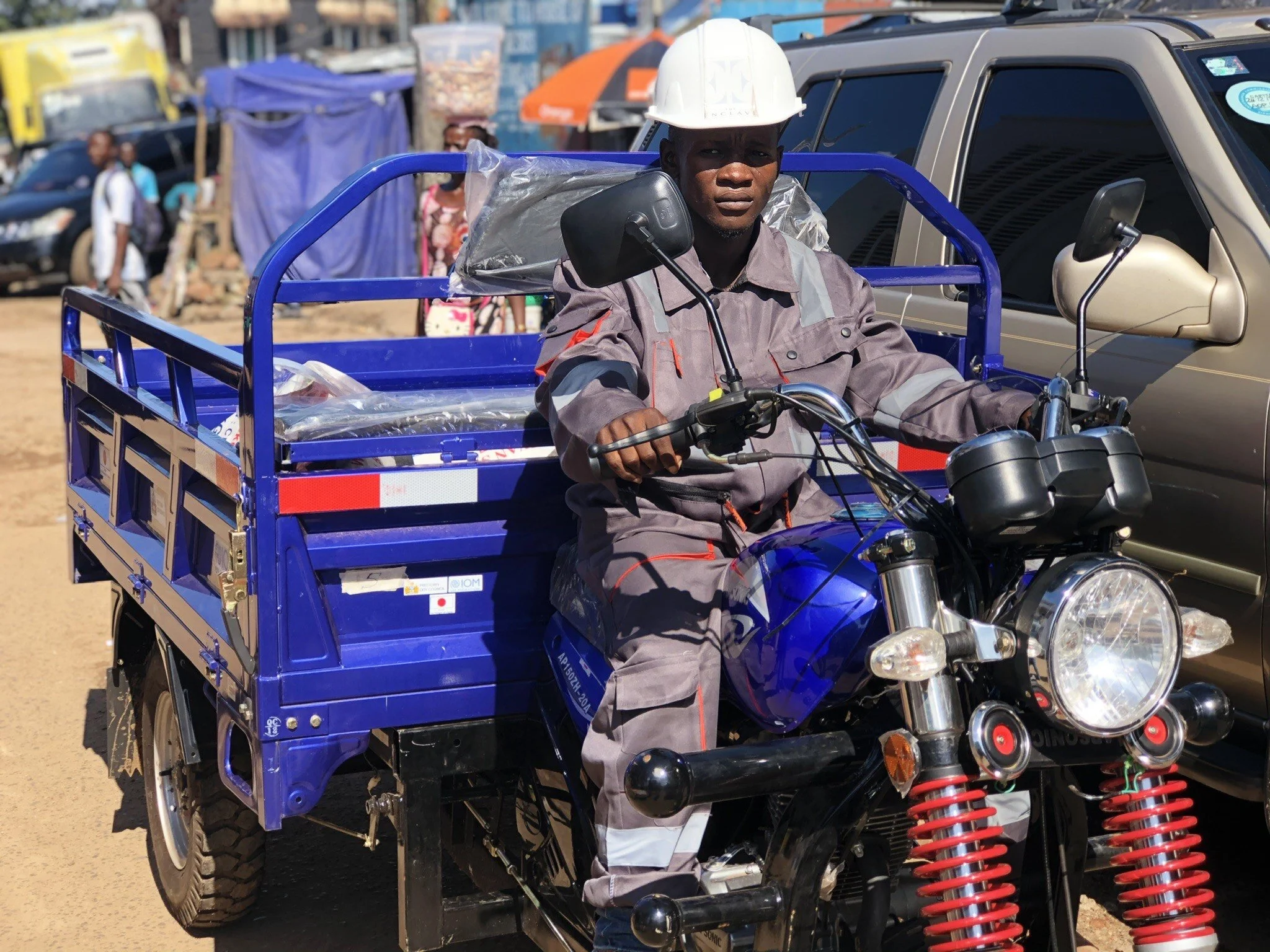Freetown, Sierra Leone
Waste Management Micro-Enterprise Program
Freetown was selected as a recipient of the inaugural Global Cities Fund for Inclusive Pandemic Response, a $1,000,000 initiative to respond to the unmet needs of cities as they support migrants, refugees, and internally displaced people (IDPs) during Covid-19. Freetown is using the funds to expand its Waste Management Micro-Enterprise program to ensure more youth living in informal settlements, many of whom are rural migrants, access the opportunity to jointly improve their livelihoods and the public health of their communities now and in the future.
Freetown’s population has more than doubled over a twenty-year period primarily due to conflict and climate change. As a result of this rapid growth, over 35 percent of the city’s estimated 1.2 million residents live in low income informal settlements where density, sanitation, and a reliance on meager daily wages were daunting challenges even before Covid-19.
While Freetown has managed to keep its Covid-19 case rates relatively low, infection prevention measures have wreaked havoc on the city’s economy. In Sierra Leone, as job losses resulting from COVID-19 mount and work opportunities reduce, national food insecurity has risen sharply from 53.4 percent in August 2019 to 63% in June 2020 and the number of households able to consume all meals in a week dropped by 20 percent from April to July. Evidence suggests that households are cutting back food consumption because of the pandemic, and this situation is exacerbated in the rural migrant dominated informal settlements where there is little buffer or cash savings to meet income shocks by COVID-19 restrictions as 75% of households had an income of less than $1 per day.
In Freetown, COVID-induced loss of work opportunities and hunger in informal communities, where majority of rural migrants live, is compounded by a lack of access to clean water for hand washing – a key preventative measure for COVID and myriad other communicable diseases. With up to 44% of residents in informal settlements reporting that they dispose of their refuse in an open drainage, poor sanitation practices contribute to the pollution of natural waterways and water points (e.g. springs, streams, wells), which are sources of water for hand washing and drinking. Consequently, rural-urban migrants are even more vulnerable to experiencing other health outbreaks as they prevent COVID-19.
Despite these circumstances, Mayor Yvonne Aki-Sawyer believes urban migration is an opportunity to be realized rather than a challenge to be overcome. Acting on this belief, Freetown is using the funds to expand its Waste Management Micro-Enterprise Program to 40 new enterprises to deliver waste collection services within informal settlements and to other Freetown residents. Through this program expansion, the city ensures that more youth living in informal settlements, many of whom are rural migrants, access the opportunity to jointly improve their livelihoods and improve public health outcomes for many communities and the city. Successful applicants are provided with initial business investment support that includes a motorized tricycle cart, sanitation tools, business registration, training and business development mentoring. The income generated from the waste collection helps the entrepreneurs pay back 80 percent of the cost of equipment over the course of a year, which will in turn unlock funds for a new set of youth to participate in the program next year. The program builds on gains made by 80 existing waste management micro-enterprises who, through Freetown’s support over the last year, are providing waste collection services to almost 30,000 households.
Visit www.mayorsmigrationcouncil.org/gcf and follow #GlobalCitiesFund on social media for more information on the Global Cities Fund. Contact fund@mayorsmigrationcouncil.org for additional information or press inquiries.


